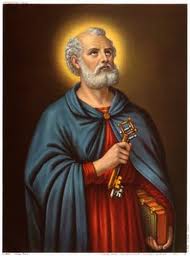 Rom. 3:10 As it is written, There is none righteous, no, not one: 11 There is none that understandeth, there is none that seeketh after God.
Rom. 3:10 As it is written, There is none righteous, no, not one: 11 There is none that understandeth, there is none that seeketh after God.
Paul, who made the above statement that no one is righteous, called HIMSELF righteous, along with Silas and Timothy, and he constantly requested that people should avoid obeying their flesh.
1 Thess. 2:10 Ye are witnesses, and God also, how holily and justly and UNNBLAMEABLY we behaved ourselves among you that believe
Acts. 23:1 And Paul, earnestly beholding the council, said, Men and brethren, I have lived in all good conscience before God until this day. (NASB: “perfectly good conscience”)
To make Romans 3:10-11 a blanket statement about all mankind in all ages is to make the Scriptures to be in contradiction. The Bible says that we are created precisely TO SEEK GOD.
Acts 17:26 And hath made of one blood all nations of men for to dwell on all the face of the earth, and hath determined the times before appointed, and the bounds of their habitation;27 THAT THEY SHOULD SEEK THE LORD, if haply they might feel after him, and find him, THOUGH HE BE NOT FAR FROM EVERY ONE OF US.
Jer. 29:13 And ye shall seek me, and find me, when ye shall search for me with all your heart
Matt. 6:33 But SEEK YE FIRST THE KINGDOM OF GOD, and his righteousness; and all these things shall be added unto you
Romans 3:10-11 is a reference to a few psalms, and they must be read in context. In those psalms you will find references of people who are righteous, as a contrast to those who are not (the foolish ones). Below is what Paul says in Romans 3, and note that he says “as it is written”, which means that we should check “what is written” so that we will understand his reason for quoting these psalms in that particular moment.
Rom. 3:9 What then? are we better than they? No, in no wise: for we have before proved both Jews and Gentiles, that they are all under sin; 10As it is written, There is none righteous, no, not one: 11There is none that understandeth, there is none that seeketh after God. 12They are all gone out of the way, they are together become unprofitable; there is none that doeth good, no, not one. 13Their throat is an open sepulchre; with their tongues they have used deceit; the poison of asps is under their lips: 14Whose mouth is full of cursing and bitterness: 15Their feet are swift to shed blood: 16Destruction and misery are in their ways: 17And the way of peace have they not known: 18There is no fear of God before their eyes.
With his comments Paul is referring to something that is written in the scriptures and below are the psalms he is quoting from. Notice that it is the FOOL who says in his heart that there is no God, and THEY (the fools) are corrupt. We can also read about RIGHTEOUS people, and they are the ones who use God as their refuge, who worship him and who desire to be led by him:
Psalm 14:1 THE FOOL hath said in his heart, There is no God. THEY are corrupt, THEY have done abominable works, there is none that doeth good. 2The LORD looked down from heaven upon the children of men, to see if there were any that did understand, and seek God. 3They are all gone aside, they are all together become filthy: there is none that doeth good, no, not one. 4Have all the workers of iniquity no knowledge? who eat up my people as they eat bread, and call not upon the LORD. 5There were they in great fear: for God is in the generation of the RIGHTEOUS. 6Ye have shamed the counsel of the poor, because the LORD is his refuge. 7Oh that the salvation of Israel were come out of Zion! when the LORD bringeth back the captivity of his people, Jacob shall rejoice, and Israel shall be glad. (See also Psalm 53)
Psalm 53:1 The fool hath said in his heart, There is no God. Corrupt are they, and have done abominable iniquity: there is none that doeth good.2 God looked down from heaven upon the children of men, to see if there were any that did understand, that did seek God.3 Every one of them is gone back: they are altogether become filthy; there is none that doeth good, no, not one.4 Have the workers of iniquity no knowledge? who eat up my people as they eat bread: they have not called upon God.5 There were they in great fear, where no fear was: for God hath scattered the bones of him that encampeth against thee: thou hast put them to shame, because God hath despised them.
Another psalm of interest:
Psalm 5:4 For thou art not a God that hath pleasure in wickedness: neither shall evil dwell with thee. 5THE FOOLISH shall not stand in thy sight: thou hatest all WORKERS OF INIQUITY. 6Thou shalt destroy them that speak leasing: the LORD will abhor the bloody and deceitful man. 7But as for me, I will come into thy house in the multitude of thy mercy: and in thy fear will I worship toward thy holy temple. 8Lead me, O LORD, in thy righteousness because of mine enemies; make thy way straight before my face. 9For there is no faithfulness in their mouth; their inward part is very wickedness; their throat is an open sepulchre; they flatter with their tongue. 10Destroy thou them, O God; let them fall by their own counsels; cast them out in the multitude of their transgressions; for they have rebelled against thee. 11But let all THOSE THAT PUT THEIR TRUST IN THEE rejoice: let them ever shout for joy, because thou defendest them: let them also that love thy name be joyful in thee. 12For thou, LORD, wilt bless the RIGHTEOUS; with favour wilt thou compass him as with a shield.
Examples of some righteous people, who were righteous because they showed their faith by their DEEDS
Gen 6:9 This is the account of Noah. Noah was a RIGHTEOUS man, blameless among the people of his time, and he walked with God.
Hebr. 11:7 By faith Noah, being warned of God of things not seen as yet, moved with fear, prepared an ark to the saving of his house; by the which he condemned the world, and became heir of the righteousness which is by faith.
Ja. 2:21 Was not Abraham our father justified by works, when he had offered Isaac his son upon the altar?
Hebr. 7:8 By faith Abraham, when he was called to go out into a place which he should after receive for an inheritance, obeyed; and he went out, not knowing whither he went.
2 Peter 2:7 And delivered just Lot, vexed with the filthy conversation of the wicked:8 (For that righteous man dwelling among them, in seeing and hearing, vexed his righteous soul from day to day with their unlawful deeds;)
Matt. 1:19 Because Joseph her husband was a RIGHTEOUS man and did not want to expose her to public disgrace, he had in mind to divorce her quietly.
Luke 2:25 Now there was a man in Jerusalem called Simeon, who was RIGHTEOUS and devout. He was waiting for the consolation of Israel, and the Holy Spirit was upon him.
Matt. 23:35 And so upon you will come all the righteous blood that has been shed on earth, from the blood of RIGHTEOUS Abel to the blood of Zechariah son of Berekiah, whom you murdered between the temple and the altar.
Job 1:1 There was a man in the land of Uz, whose name was Job; and that man was perfect and upright, and one that feared God, and eschewed evil.
Unbelievers can DO good and are requested to BE good
Every time someone decides to not murder or steal, it is surely a good thing before the Lord. The Prodigal son was spiritually lost and DEAD, and yet he could still choose to act wisely, and he made a good moral decision to repent and to return to his Father.
Matt. 7:11 If ye then, being EVIL, know how to give GOOD gifts unto your children, how much more shall your Father which is in heaven give good things to them that ask him?
Acts 28:And when they were escaped, then they knew that the island was called Melita.2 And the BARBAROUS PEOPLE shewed us no little kindness: for they kindled a fire, and received us every one, because of the present rain, and because of the cold.
1 Cor. 14:24 But if an UNBELIEVER or someone who does not understand comes in while everybody is prophesying, he will be convinced by all that he is a sinner and will be judged by all, 25and the secrets of his heart will be laid bare. So he will fall down and worship God, exclaiming,“GOD IS REALLY AMONG YOU!”
Ja. 4:17 Therefore to him that KNOWETH to do good, and doeth it not, to him it is sin.
Rom. 2:14 For when the Gentiles, which have not the law, do by nature the things contained in the law, these, having not the law, are a law unto themselves: 15Which shew the work of the law written in their hearts, their conscience also bearing witness, and their thoughts the mean while accusing or else excusing one another)
The Bible is loaded with verses which show that we are expected to seek God
Deuteronomy 4:29 But if from thence thou shalt seek the LORD thy God, thou shalt find him, if thou seek him with all thy heart and with all thy soul.
1 Chronicles 22:19 Now set your heart and your soul to seek the LORD your God; arise therefore, and build ye the sanctuary of the LORD God, to bring the ark of the covenant of the LORD, and the holy vessels of God, into the house that is to be built to the name of the LORD.
1 Chronicles 28:9 And thou, Solomon my son, know thou the God of thy father, and serve him with a perfect heart and with a willing mind: for the LORD searcheth all hearts, and understandeth all the imaginations of the thoughts: if thou seek him, he will be found of thee; but if thou forsake him, he will cast thee off for ever.
2 Chronicles 11:16 And after them out of all the tribes of Israel such as set their hearts to seek the LORD God of Israel came to Jerusalem, to sacrifice unto the LORD God of their fathers.
2 Chronicles 14:4 And commanded Judah to seek the LORD God of their fathers, and to do the law and the commandment
2 Chronicles 15:4 But when they in their trouble did turn unto the LORD God of Israel, and sought him, he was found of them.
2 Chronicles 15:12-13 12 And they entered into a covenant to seek the LORD God of their fathers with all their heart and with all their soul; 13 That whosoever would not seek the LORD God of Israel should be put to death, whether small or great, whether man or woman.
2 Chronicles 19:3 Nevertheless there are good things found in thee, in that thou hast taken away the groves out of the land, and hast prepared thine heart to seek God.
2 Chronicles 30:19 That prepareth his heart to seek God, the LORD God of his fathers, though he be not cleansed according to the purification of the sanctuary.
2 Chronicles 31:21 And in every work that he began in the service of the house of God, and in the law, and in the commandments, to seek his God, he did it with all his heart, and prospered.
2 Chronicles 34:3 For in the eighth year of his reign, while he was yet young, he began to seek after the God of David his father: and in the twelfth year he began to purge Judah and Jerusalem from the high places, and the groves, and the carved images, and the molten images.
Ezra 6:21 And the children of Israel, which were come again out of captivity, and all such as had separated themselves unto them from the filthiness of the heathen of the land, to seek the LORD God of Israel, did eat,
Ezra 8:21-22 21 Then I proclaimed a fast there, at the river of Ahava, that we might afflict ourselves before our God, to seek of him a right way for us, and for our little ones, and for all our substance. 22 For I was ashamed to require of the king a band of soldiers and horsemen to help us against the enemy in the way: because we had spoken unto the king, saying, The hand of our God is upon all them for good that seek him; but his power and his wrath is against all them that forsake him.
Psalm 10:4 The WICKED, through the pride of his countenance, will not seek after God: God is not in all his thoughts.
Psalm 63:1 O God, thou art my God; early will I seek thee: my soul thirsteth for thee, my flesh longeth for thee in a dry and thirsty land, where no water is;
Psalm 69:6 Let not them that wait on thee, O Lord GOD of hosts, be ashamed for my sake: let not those that seek thee be confounded for my sake, O God of Israel.
Psalm 70:4 Let all those that seek thee rejoice and be glad in thee: and let such as love thy salvation say continually, LetGod be magnified.
Isaiah 55:6 Seek ye the LORD while he may be found, call ye upon him while he is near: Let the wicked forsake his way, and the unrighteous man his thoughts.
Isaiah 58:2 Yet they seek me daily, and delight to know my ways, as a nation that did righteousness, and forsook not the ordinance of their God: they ask of me the ordinances of justice; they take delight in approaching to God.
Daniel 9:3 And I set my face unto the Lord God, to seek by prayer and supplications, with fasting, and sackcloth, and ashes:
Hosea 3:5 Afterward shall the children of Israel return, and seek the LORD their God, and David their king; and shall fear the LORD and his goodness in the latter days.
Amos 5:14 Seek good, and not evil, that ye may live: and so the LORD, the God of hosts, shall be with you, as ye have spoken.
Hebrews 11:6 But without faith it is impossible to please him: for he that cometh to God must believe that he is, and that he is a rewarder of them that diligently seek him.
Warnings, conditions and commands that we must cleanse ourselves
Jeremiah 4:14 Wash thine heart from wickedness, that thou mayest be saved
Ezekiel 18:31 Make you a new heart and a new spirit: for why will ye die…
James 4:8 Draw nigh to God, and he will draw nigh to you. Cleanse your hands, ye sinners; and purify your hearts, ye double minded
Romans 12:2 And be not conformed to this world: but be ye transformed by the renewing of your mind, that ye may prove what is that good, and acceptable, and perfect, will of God.
Luke 12:35 Be dressed ready for service and keep your lamps burning
Hebrews 3:13 But exhort one another daily, while it is called To day; lest any of you be hardened through the deceitfulness of sin. Make every effort to live in peace with all men and to be holy; without HOLINESS no one will see the Lord.
Philippians 2:12 Wherefore, my beloved, as ye have always obeyed, not as in my presence only, but now much more in my absence, work out your own salvation with fear and trembling.
2 Peter 1:5And beside this, giving all diligence, add to your faith virtue; and to virtue knowledge; 6And to knowledge temperance; and to temperance patience; and to patience godliness; 7And to godliness brotherly kindness; and to brotherly kindness charity. 8For if these things be in you, and abound, they make you that ye shall neither be barren nor unfruitful in the knowledge of our Lord Jesus Christ. 9But he that lacketh these things is blind, and cannot see afar off, and hath forgotten that he was purged from his old sins. 10Wherefore the rather, brethren, give diligence to make your calling and election sure: for if ye do these things, ye shall never fall: 11For so an entrance shall be ministered unto you abundantly into the everlasting kingdom of our Lord and Saviour Jesus Christ.
Matthew 16:24 Then Jesus said to his disciples, “If anyone would come after me, he must deny himself and take up his cross and FOLLOW me.”
 No man can come to me, except the Father which hath sent me DRAW him: and I will raise him up at the last day (John 6:44)
No man can come to me, except the Father which hath sent me DRAW him: and I will raise him up at the last day (John 6:44)



